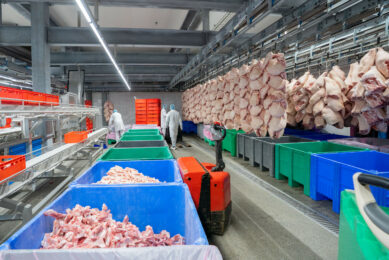China enables 5 more pig plants in Brazil to export

Another group of 5 Brazilian pig slaughterhouses has received permission to start exporting to China.
That was made clear in a statement issued by the Chinese health agency (GACC) which was sent to Brazil’s Ministry of Agriculture, Livestock and Food Supply (MAPA).
The announcement was made earlier this week by Tereza Cristina, Brazil’s minister for Agriculture, Livestock and Supply. It is the 2nd round of approvals in a short time. Last week, 7 pork meat plants also received a thumbs up to start exporting by-products to China.
On Twitter, Cristina said, “We have everything to deliver our production to the world,” during an event in Londrina, PR. The 5 pork meat plants are all in the state Rio Grande do Sul.
Bom dia! Daqui a pouco sigo para Londrina (PR) para a cerimônia de
abertura do AgroBit Brasil. Mas antes gostaria de dar uma ótima notícia: habilitação de mais 13 plantas para China. pic.twitter.com/A5j5EJnY5t— Tereza Cristina (@TerezaCrisMS) November 12, 2019
The pig slaughterhouses are:
- BRF in Lajeado;
- Cooperative Aurora in Sarandi;
- JBS in Caxias do Sul;
- Seara Alimentos in Três Passos and
- Seberi.
Valdecir Folador, president of the Pig Producers Association of Rio Grande do Sul (ACSURS), applauded the announcement which, in his opinion, will mitigate prices seasonality.
He said, “Historically, the pig market has had large variations on prices in Brazil. Due to the Brazilian government efforts and China’s increased demand, we expect some years of stability.”

Read more about pig production in Brazil
No uncontrolled growth of pig farm growth
He warned, however, that pig producers should be careful not to uncontrollably increase their herds because China will recover its production sooner or later. He said, “This openness benefits both enabled factories that will export and small farmers on supplying internal market. Any new investments has to prioritise efficiency and technology in order to face the market in the future.”
Brazil now counts 15 pork meat approved plants for trade to China in 3 different states. Just 3 months ago, this number was 9. Apart from pork meat factories, the Chinese government also allowed 5 more beef plants as well as 3 more poultry plants, in different states in Brazil, to start exporting.











